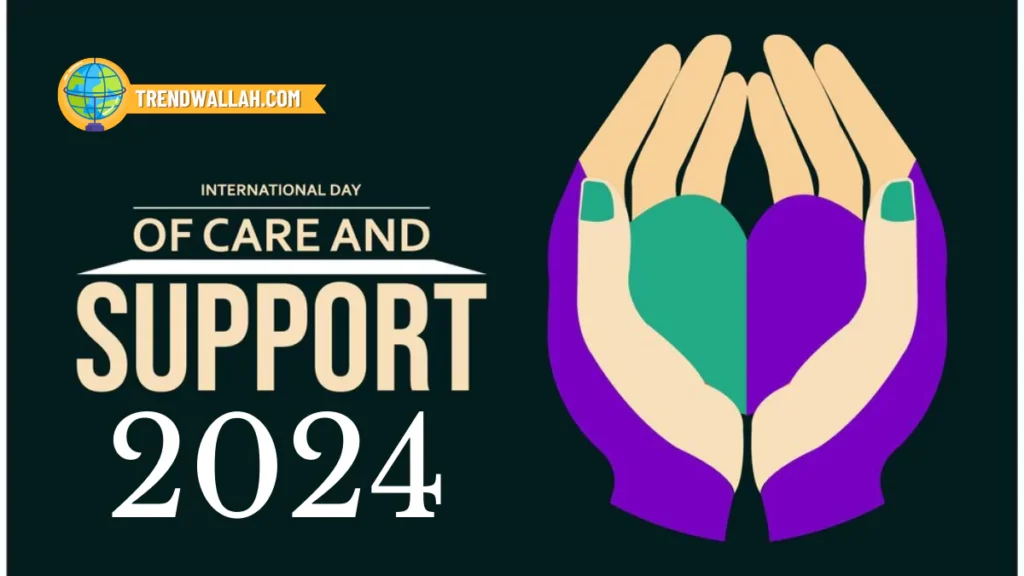
Every year on October 29th, the International Day of Care and Support is observed globally to recognize and honor the contributions of caregivers. The day aims to raise awareness and promote laws, policies, and initiatives that strengthen care and support systems across all forms. In 2024, the theme is “Ageing with Dignity: The Importance of Strengthening Care and Support Systems for Older Persons Worldwide,” emphasizing the need for better care facilities for the elderly.
Key Objectives of the International Day of Care and Support 2024
- Recognition of Care Work:
- Highlights the value of both paid and unpaid care work.
- Emphasizes the need to acknowledge caregivers as essential contributors to society and the economy.
- Support for Unpaid Caregivers:
- Promotes investment in public services like childcare and eldercare.
- Aims to balance care responsibilities between men and women, improving economic opportunities for women.
- Addressing Gender Stereotypes:
- Focuses on removing gender biases that limit women and minorities to lower-paid care roles.
- Encourages fighting stereotypes linked to gender, race, ethnicity, and age.
- Formalizing the Care Sector:
- Supports the transition from informal to formal care work, providing benefits, job security, and social protections.
- Emphasizes creating quality jobs and raising wages for caregivers and domestic workers.
- Promoting Equal Rights for Women:
- Ensures women’s right to work and equal pay for equal value, addressing gender pay gaps in care professions.
| Key Focus | Details |
| Recognition of Care Work | Acknowledging the value of paid and unpaid caregivers. |
| Unpaid Care Work | Supporting unpaid caregivers through investments in public services. |
| Gender Stereotypes | Combating stereotypes tied to gender, race, and age in care work. |
| Formal Employment | Facilitating formalization in the care sector, with access to benefits. |
| Women’s Rights | Upholding women’s right to work and advocating for equal pay. |
History of the International Day of Care and Support
The UN General Assembly declared October 29th as the International Day of Care and Support in 2023. This decision was made following a resolution co-sponsored by over 100 nations, acknowledging the role of care in advancing gender equality, sustainable development, and human well-being. The Care Agenda by the International Labour Organization (ILO) in 2016 was a significant milestone, calling for better funding for care services and recognizing unpaid caregiving. The COVID-19 pandemic further highlighted the crucial role of caregivers, leading to the official declaration of this day.
Summary:
- The International Day of Care and Support is celebrated on October 29th every year to honor caregivers worldwide.
- The 2024 theme focuses on “Ageing with Dignity,” promoting better care systems for older persons.
- The day emphasizes recognition of care work, reducing unpaid caregiving burdens, and combating gender stereotypes.
- It encourages policies to formalize the care sector, ensuring benefits and job security for caregivers.
The UN General Assembly declared the day in 2023, acknowledging care’s role in sustainable development.
International Day of Care and Support 2024
Also Read Latest Current Affairs 2024
The International Day of Care and Support is observed every October 29th to honor caregivers and promote initiatives that strengthen care and support systems worldwide.
The 2024 theme emphasizes the need for robust care systems for the elderly, highlighting the importance of dignity, support, and compassion for older persons.
The day aims to recognize care work, support unpaid caregivers, combat gender stereotypes, and formalize the care sector to ensure better job security and benefits.
The day was officially declared by the UN General Assembly in 2023. Its origins trace back to the early 2000s, with advocacy from civil society organizations and trade unions.
Supporting unpaid caregivers ensures they have access to services like childcare and eldercare, allowing them to balance caregiving with other economic opportunities.
The Care Agenda, introduced in 2016 by the ILO, calls for increased funding for care services and the recognition of unpaid caregiving, laying the groundwork for global care policies.
